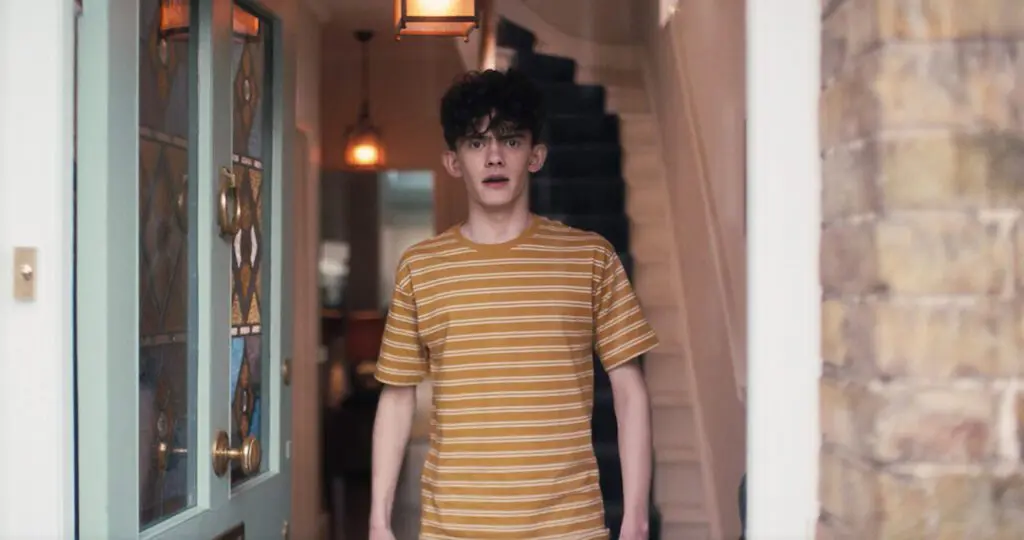Summary
Heartstopper might lack some edge and feel as if it’s speaking to a younger demographic than the usual teen drama, but its deeply uplifting portrait of young love is very difficult not to get swept up in.
This review of Heartstopper Season 1 is spoiler-free.
There’s something undeniably heartwarming and uplifting about Heartstopper, the new eight-part teen coming-of-age drama adapted from creator and writer Alice Oseman’s webcomics turned graphic novels. It can be a little clunky and play things a little safe, and it’s skewed towards teenagers aged 12-15 rather than the typical young adults, but its smart inversion of the usual dynamic and deeply likable attitude and characters make for a winning formula that’ll no doubt delight its target demographic – and hopefully some other markets besides.
Here’s the thing about that aforementioned dynamic – Charlie (Joe Locke), the protagonist, is a gay schoolboy who’s already out. It hasn’t been easy for him, we’re told, but the first season of Heartstopper picks up with the entirety of Truham Grammar School for Boys knowing he’s gay, and a year of vicious homophobic bullying (mostly) behind him. Instead, the obligatory closeted character is Charlie’s love interest Nick Nelson (Kit Connor), a star rugby player from the year above with the standard gang of jock mates but an atypically charming attitude. Nick isn’t like any rugby player I’ve ever met, but that’s entirely the point – he’s a fundamentally decent guy who is just discovering that he might be a person completely different from the character he has been playing his entire life.
This is part of the reason why the burgeoning romance between Charlie and Nick works so well – Charlie, the timid, quintessential “victim” archetype, is able to help the school sports star to navigate deeply personal and confounding emotional territory. They aren’t just learning to love each other, but themselves, which for Nick, who is rapidly coming around to the idea that his entire life thus far might have essentially been a fiction, is easier said than done.
This is, admittedly, something of a trite theme, but it’s a worthwhile one for a show that delivers a deliberately edgeless portrayal of teen life completely devoid of sex, drugs, and every other illicit idea that such stories tend to peddle. Euphoria this most certainly is not. And while this decidedly posh, quintessentially English depiction of schooling doesn’t remotely resemble my experiences of British state education, it seems quite fitting for a show in which animated butterflies flutter across the screen to highlight a character’s nervous excitement when sitting next to his crush.
The dork-meets-cool-kid vibe also extends outward from Charlie and Nick to encompass their circle of friends, and as the latter begins to realize that his social clique is comprised of bullies and cowards, he finds himself becoming closer to the former’s gang of misfits, which includes the underused Isaac (Tobie Donovan), protective Tao (Will Gao), and Elle (Yasmin Finney), a transgender student who has moved from Truham to the neighboring all-girls school, though it isn’t entirely clear how many people have made this connection.
Heartstopper includes its fair share of standard genre tropes, and there’s a nasty streak to its depiction of bullying and social ostracization, even if the primary antagonist is a bit of an arch cartoon. But you can tell the show’s primary concern isn’t languishing in the trauma that marginalized people experience. Instead, it’s about normalizing diversity, and celebrating a kind of love and support between friends, lovers, parents and their children, teachers and their students, that popular media is so starved of lately. (Olivia Colman is in this as Nick’s supportive mother, and it’s a testament to how well the show prioritizes its cast of mostly young newcomers that she hasn’t warranted a mention until now.)
There’s a sense of the idyllic to Heartstopper, an almost dreamlike quality further enhanced by the formal flourishes designed to show how closely the story has been adapted from the page to the screen. But its secret is its earnest heart, sensitivity, and sense of empathy; it’s easy to imagine many young people being able to find themselves through this show, and it’s hard to think of a better compliment to pay it than that.




